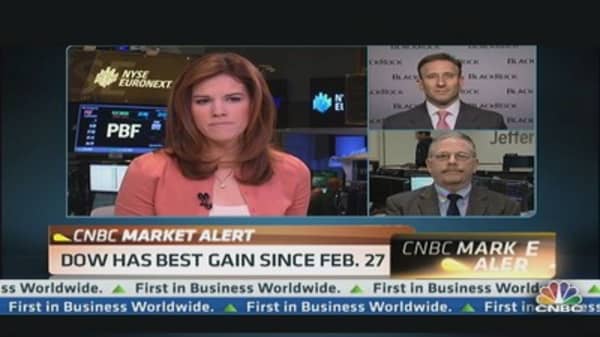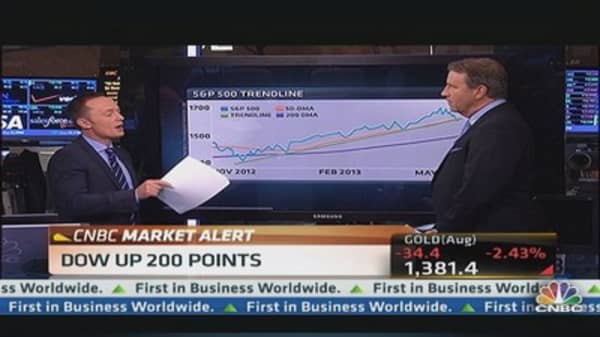The U.S. added 175,000 jobs in May, according to the Labor Department, indicating the economy was expanding modestly, but not enough to convince the Federal Reserve to pare back its bond-buying program. The unemployment rate edged up to 7.6 percent. Economists surveyed by Reuters expected a gain of 170,000 jobs with the rate holding steady at 7.5 percent.
"I'm disappointed. This number was not that impressive and I don't see a lift off that we should have seen by now if QE was working—we were barely above the consensus, but for it to be a really good number, it had to be above 200,000," said Doug Cote, chief market strategist at ING U.S. Investment Management. "And judging by this number, it's clear that QE3 is not creating sustainable growth."
Employment is a key indicator for the Federal Reserve, and Chairman Ben Bernanke has indicated the central bank could start tapering off its $85 billion bond purchases if the jobs market shows consistent improvement. Other Fed officials have also fanned expectations they are prepared to consider downsizing the asset purchase program.
Meanwhile, former Federal Reserve Chairman Alan Greenspan told CNBC that the central bank should start to taper its $85 billion a month bond-buying program even if the economy is not ready for it, saying that the near-zero interest rate policy has helped stock prices, but the markets need to be prepared for faster-than-expected rise in rates.
"QE is a temporary phenomenon for the market and ultimately, as soon as [the Fed support] ends or tapers off, the market would lose major support," said Cote.
Also on the economic front, consumer credit rose $11.1 billion in April after March's $8.4 billion increase. Economists polled by Reuters forecast a $12.5 billion gain.





